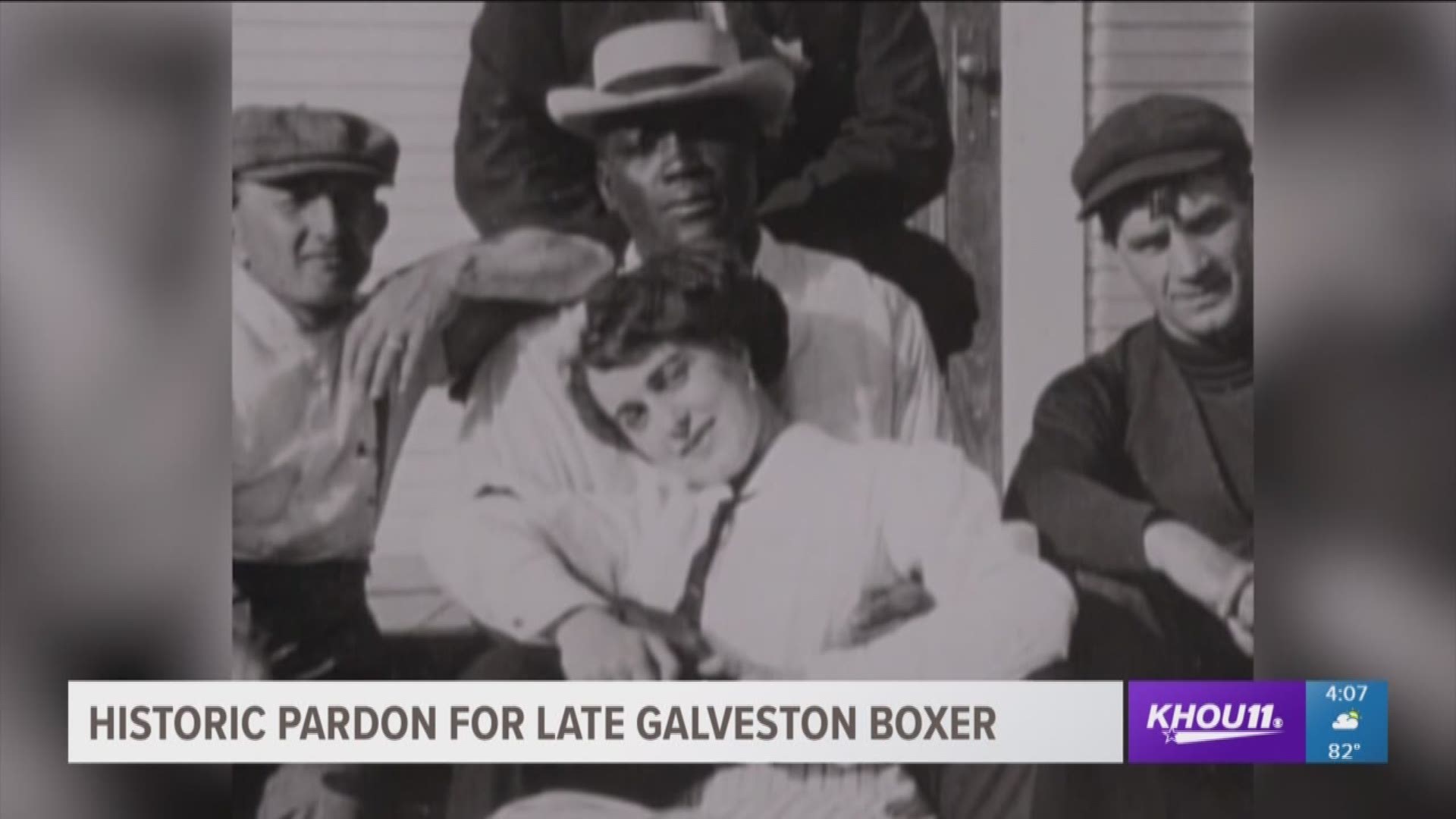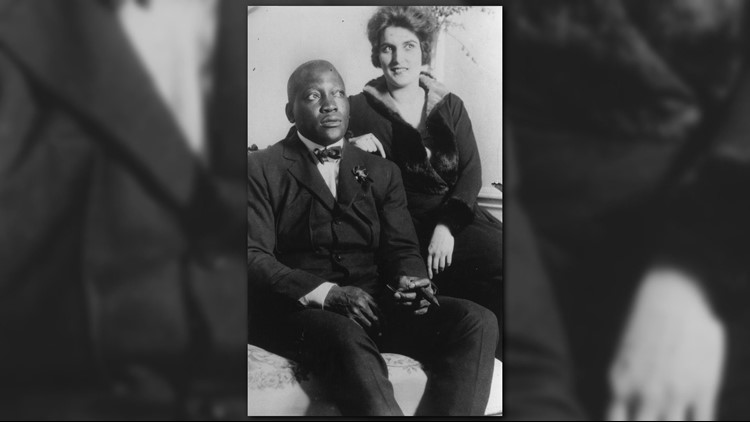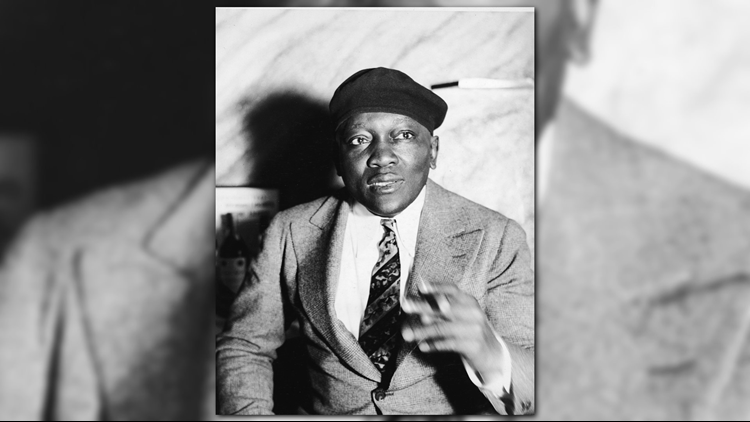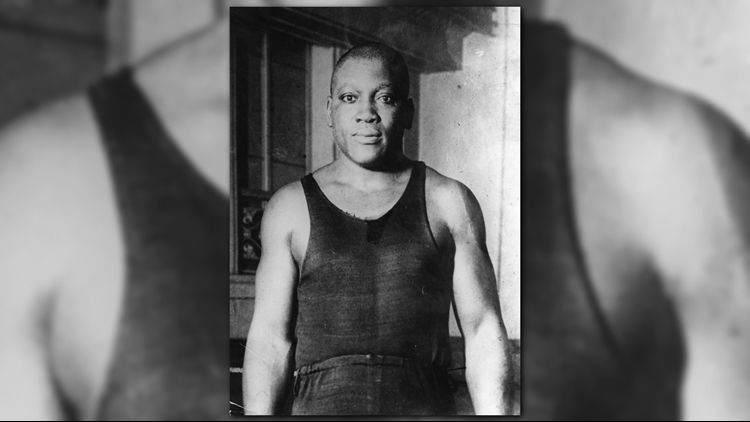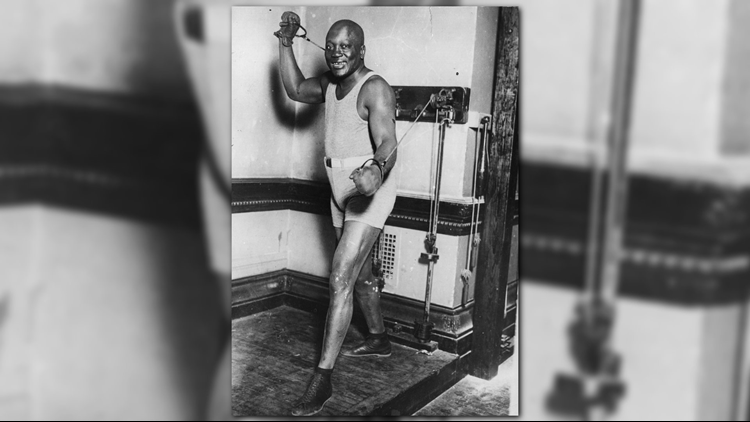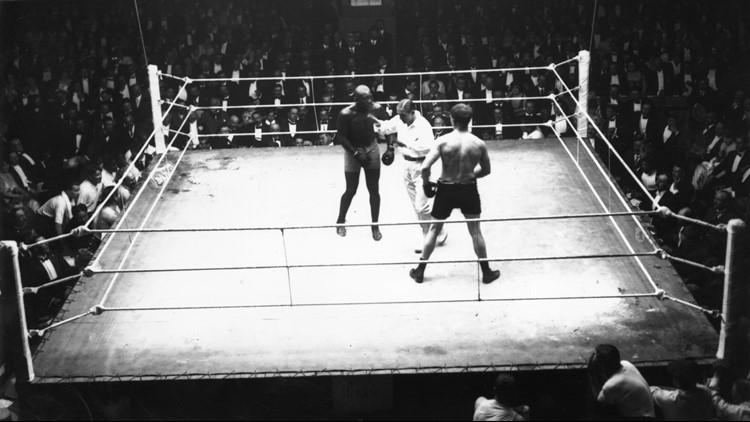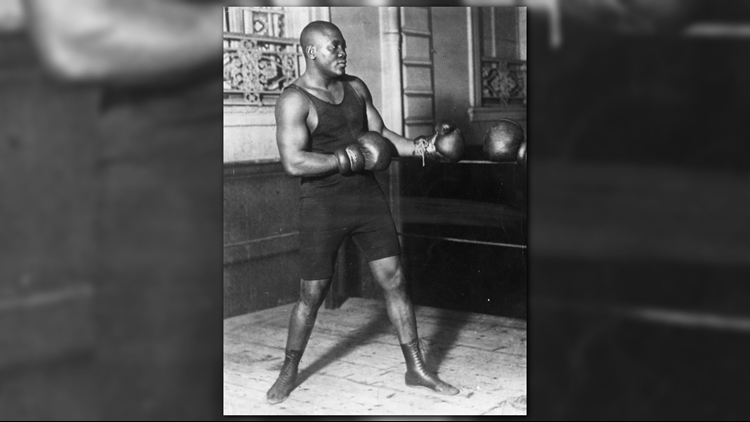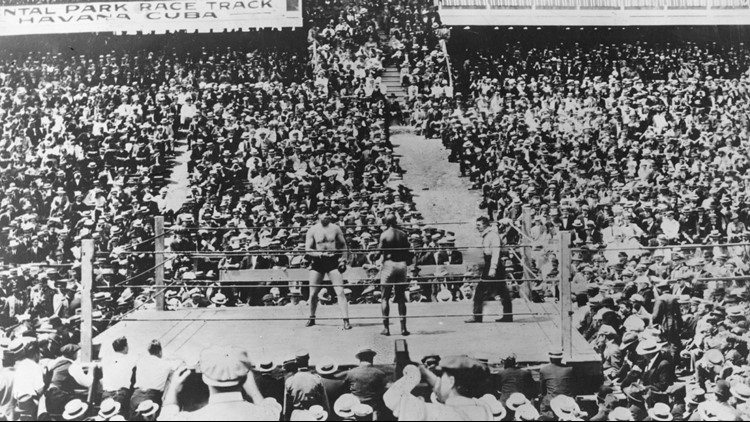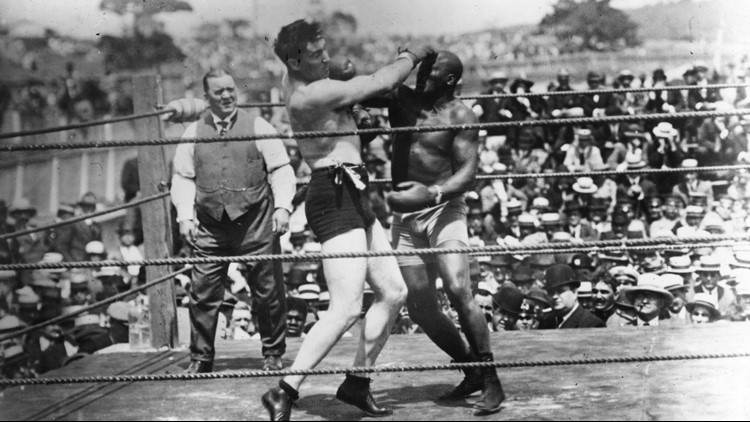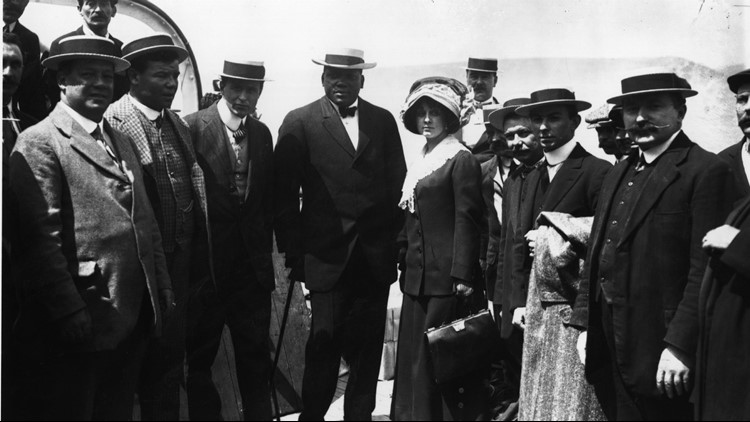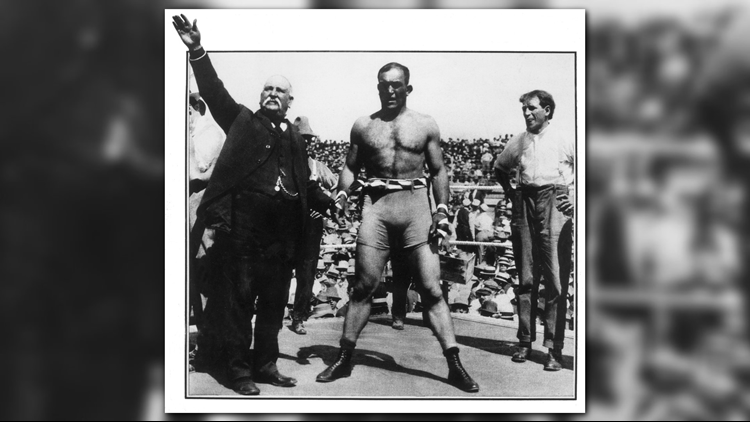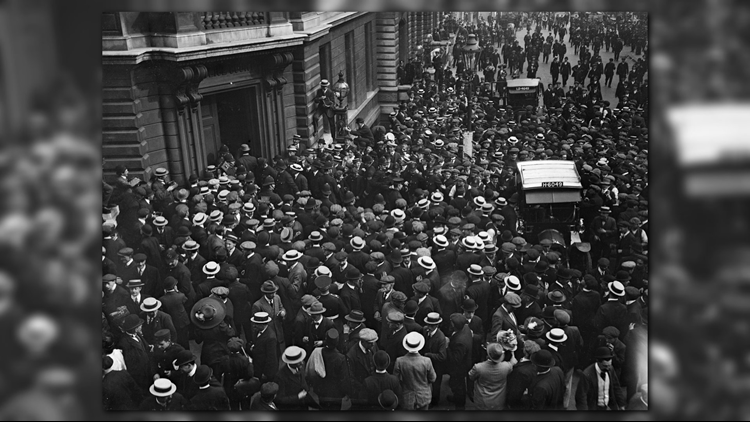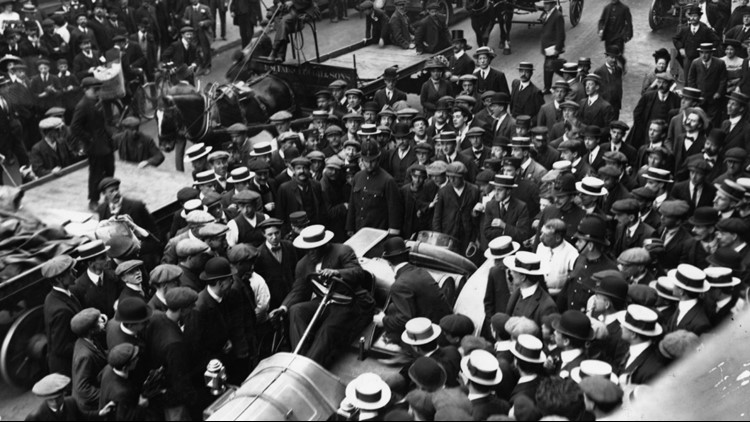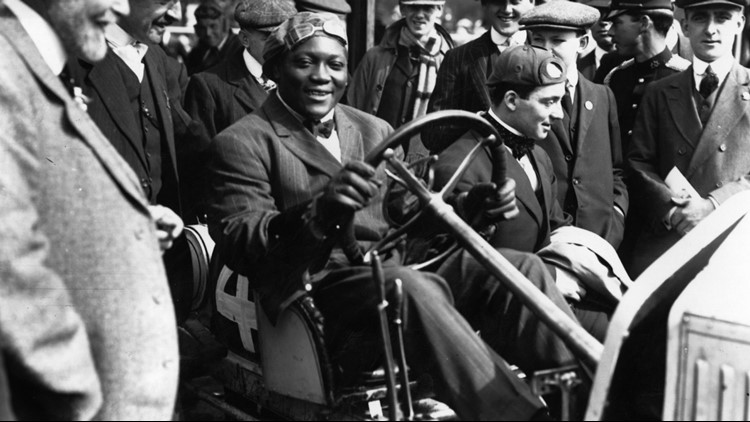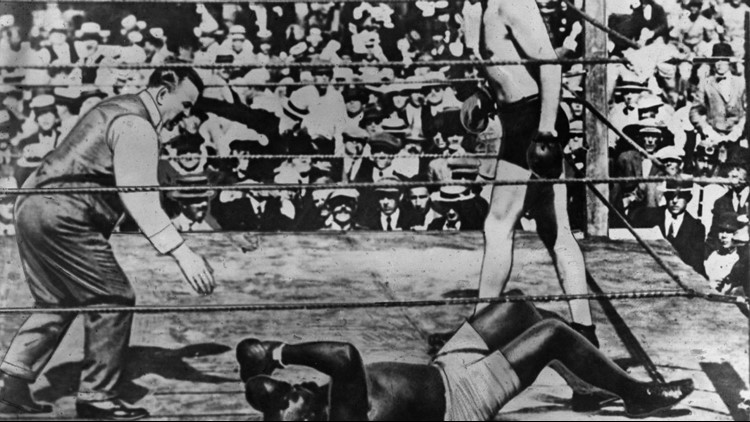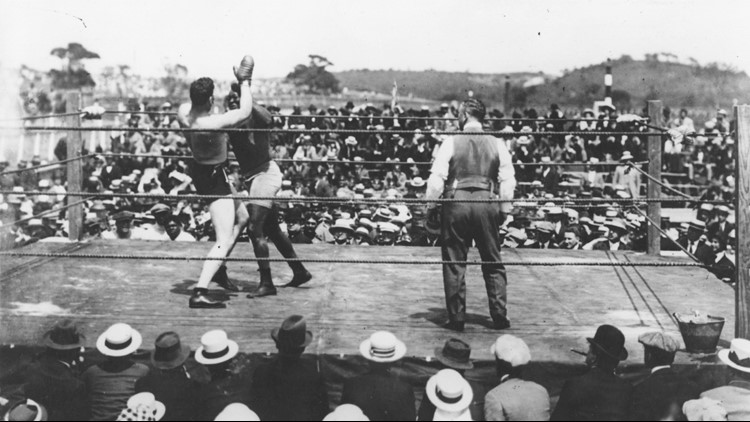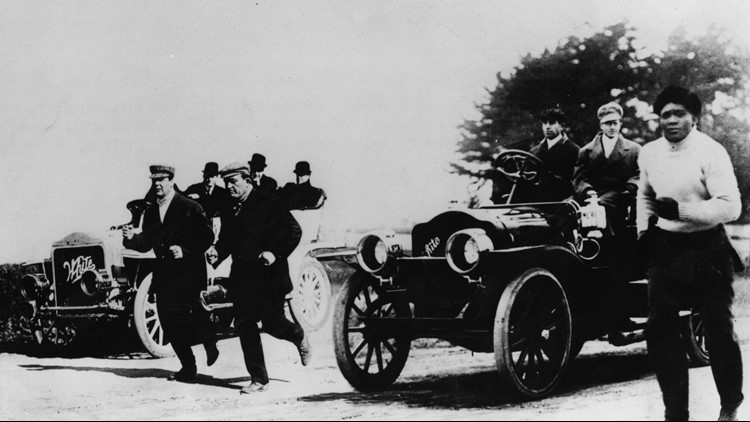WASHINGTON (AP) - President Donald Trump has granted a rare posthumous pardon to Jack Johnson, boxing's first black heavyweight champion more than 100 years after what Trump said many feel was a racially motivated injustice.
Jack Johnson was convicted in 1913 by an all-white jury for violating the Mann Act, which made it illegal to transport women across state lines for "immoral" purposes.
"I believe that Jack Johnson is a very worthy person to receive a full pardon, and in this case, a posthumous pardon," the president said. "So I am taking this very righteous step, I believe, to correct a wrong that occurred in our history and to honor a truly legendary boxing champion."
Trump was joined by boxer Lennox Lewis and actor Sylvester Stallone as he announced the decision. Stallone, who starred in the "Rocky" series," had urged Mr. Trump to grant the pardon.
A post shared by Sly Stallone (@officialslystallone) on
The actor posted a photo with Trump and others during the Oval Office ceremony on Instagram Thursday saying, "Thank you one and all! Justice has been done! Keep punching."
Photos: Legendary heavyweight boxing champion Jack Johnson
Johnson is a legendary figure in boxing, who crossed over into popular culture decades ago with biographies, dramas and documentaries following the civil rights era.
He died in 1946. His great-great niece had been pressing for a posthumous pardon.
Sen. John McCain and former Senate Majority Leader Harry Reid had also pushed Johnson's case for years.
The world heavyweight champion was born in Galveston where a park and street are named after him and a where a statue of him was erected 16 years ago.
Jack Johnson died 72 years ago, but in his day, he was the toughest fighter in the world.
Johnson was once deemed, by filmmaker Ken Burns, "the most notorious African-American on Earth."
Long before his death, however, he'd already established himself not only as the polarizing subject of the Mann Act violation but, even more prominently, as a champion of the black community in boxing.
Despite refusals by some of that era's top boxers to even consider joining him in the ring, Johnson went down in history for his 1910 bout with former undefeated heavyweight champion James J. Jeffries -- a match later called "the fight of the century" that made "a black man... the undisputed champion of the world."
Johnson fought professionally until 1915, logging 73 wins, 40 of which were decided by knockout.
Johnson's victory in 1908 launched a racially-motivated search for what was called the “great white hope,” a white man who could beat Johnson.
When that didn’t work — other tactics were used to de-throne the champ.
Johnson had a series of white girlfriends — one of whom he married — but in 1913 an all-white jury convicted Johnson of violating the Mann Act: Crossing state lines with a woman for an “immoral purpose.”
Today, the conviction is seen as Jim-Crow-era racism, something that should’ve never happened.
Discussion of a presidential pardon has come up in the past — but nothing ever materialized.

